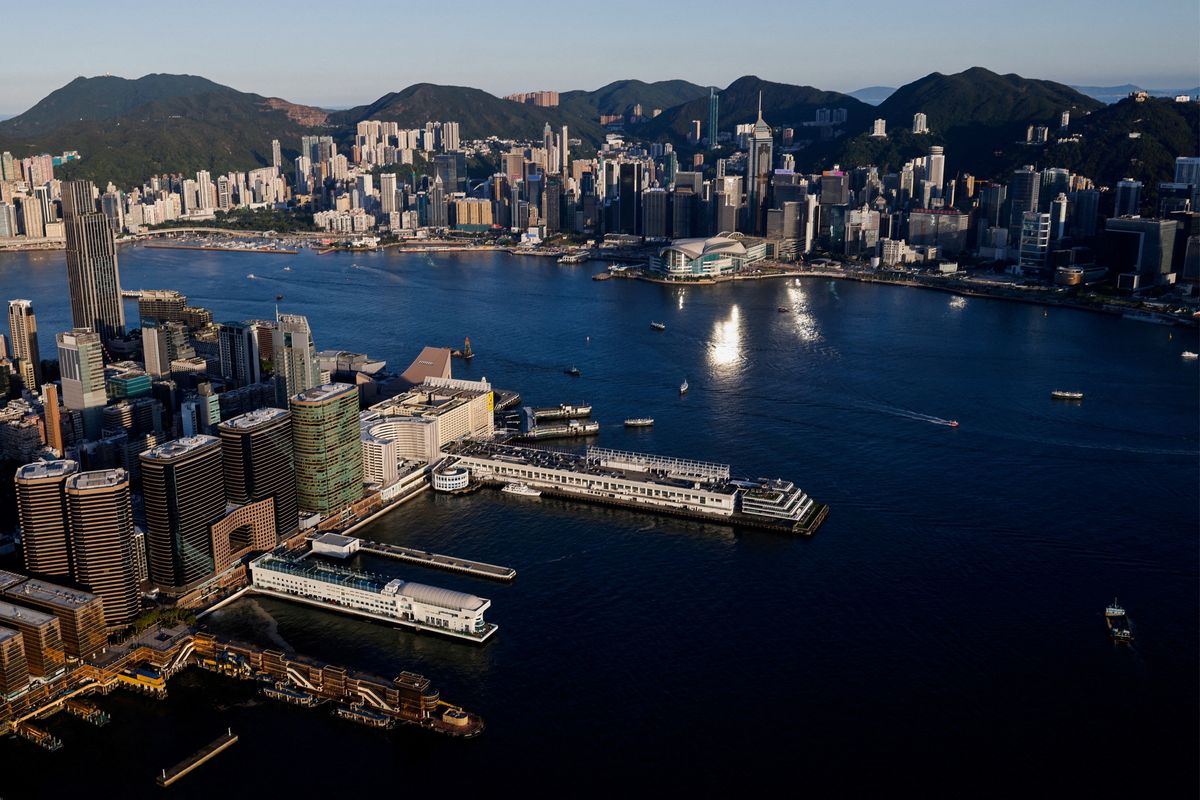Why Hong Kong's office spaces are seeing high vacancy
You know those sky-high office towers that have always been iconic to Hong Kong? Well, they're feeling pretty lonely these days.

A few minutes every morning is all you need.
Stay up to date on the world's Headlines and Human Stories. It's fun, it's factual, it's fluff-free.
The backstory: You know those sky-high office towers that have always been iconic to Hong Kong? Well, they're feeling pretty lonely these days. Now, you'd expect the office space market to be on fire since the border restrictions between Hong Kong and the mainland are a thing of the past. But the commercial real estate sector isn't feeling the love. Rents and sale prices for these spaces, which used to be among the most expensive in the world, are actually in a freefall.
Unlike New York or London, where people work from home a lot, Hong Kongers prefer the good ol' office life. In fact, subway ridership in Hong Kong has already roared back to almost 90% of its pre-COVID levels by the end of last year, while in New York, it's lagging behind at a mere 65% as of March.
More recently: Despite the slump, developers just keep building more skyscrapers. According to the property experts at JLL, around 3 million square feet of office space will be up for grabs next year, potentially leading to an increase in vacancy rates. The Cheung Kong Center, owned by CK Asset, is about 25% vacant. That's where Goldman Sachs hangs its hat. And rumor has it that HSBC employees might lose their private offices because the bank wants to cut down on real estate worldwide by 40%. It's still unclear if Hong Kong will feel the impact.
But it's not all doom and gloom. Auction houses like Christie's, Phillip's, and Sotheby's are making waves in Hong Kong by expanding their presence in the city. In April, the Chinese tech giant ByteDance also announced it's moving to an even bigger office in Central's International Finance Centre.
The development: According to Colliers International Group, the vacancy rates for those top-notch office spaces shot up to nearly 15% in April. That's more than three times higher than just a couple of years ago. On top of that, another property tycoon, Lee Shau Kee, has a fancy curved glass building under construction called The Henderson, but it's only 30% leased. And his latest project across from the Cheung Kong Center has only snagged one tenant so far.
Now, let's get to the reasons behind all this. It's not just because of a rise in remote work, as we mentioned earlier. Hong Kong has its own set of issues. Western banks, for example, are saying, "Eh, we don't really need all that office space anymore." Deals are slowing down, China's getting a firmer hold on the financial hub, and expats waving goodbye to the city aren't helping the situation.
Plus, those Chinese firms we thought would swoop in to save the day? Their own economy isn't doing so hot, so they're not snatching up as much space as hoped. In fact, last year, mainland-based companies only accounted for less than 6% of all leases in Hong Kong's main business district, a far cry from the nearly 30% they occupied in 2019.
Key comments:
“The market is challenging,” said Eddie Kwok of CBRE Group. “Price declines may slow, but it’s difficult for a rebound.”
“For those cash rich or local big players, they don’t have the pressure to sell the assets with a big discount at the market right now,” said Rosanna Tang, executive director at Cushman & Wakefield.
“During Covid, the businesses in mainland China had time to reflect and organize themselves,” said Paul Salnikow, CEO at The Executive Centre, in April. “Now we are absolutely seeing a concerted flow of companies coming in tours of five, 10 people” to take up offices in Hong Kong.
"Looking ahead, we expect to see a recovery in demand when Hong Kong fully reopens in 2023, in particular in the second half of next year,” said Sam Gourlay, Senior Director of Office Leasing Advisory at JLL in Hong Kong. “The gradual easing of Covid-19 restrictions in mainland China and Hong Kong, and pathway to more efficient overseas travel for Hong Kong, will lead to increased PRC and international demand.”




Comments ()